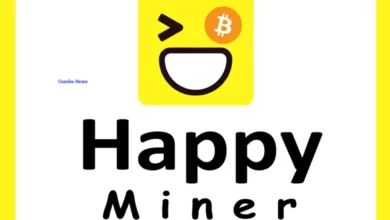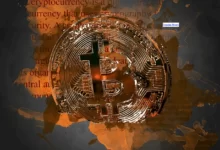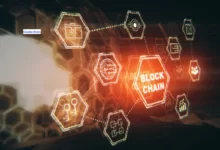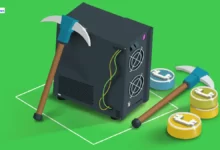Internet Computer (ICP) Things You Need To Know Before Investing
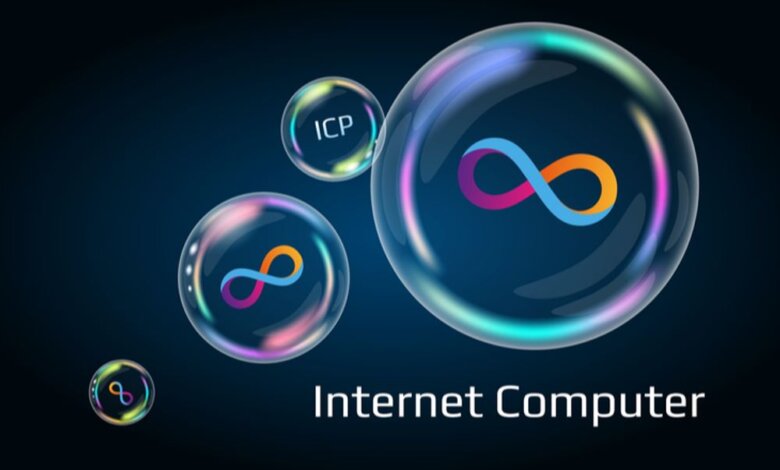
Table of Contents
What is the Internet Computer (ICP)?
The Internet Computer is the fastest and only infinitely scalable general-purpose blockchain — incubated and launched by the DFINITY Foundation in May 2021 — and aims to become a ‘world computer’ hosting Web3 dapps, DeFi, games, NFTs, social media, and metaverse used by billions of users. It also represents the third major blockchain innovation, alongside Bitcoin and Ethereum — a blockchain that supports industry-leading 250,000 queries per second, executed with 1-second transaction finality, storage costs no more than $0.46 per GB per month, and decentralized, censorship-resistant sovereign physical infrastructure capable of scaling to millions of nodes using ground-breaking technology called Chain Key cryptography. The concept of a “world computer” that cannot be shut down originated from the Ethereum ecosystem, where early Ethereum technologist Dominic Williams, now Founder and Chief Scientist at DFINITY, assembled over 200 world-renowned cryptographers, distributed systems engineers, and programming language experts from Google, Amazon, Facebook, Microsoft, IBM, Intel, Oracle, Uber, Samsung, and Apple to tackle the massive technological challenge of building an “internet computer” powerful enough to support infinitely scalable Web3 dapps. The project was funded in October 2016 by Dominic Williams and attracted significant interest and financial contributions from early members of the Ethereum community. Later, DFINITY raised $121 million from contributors such as Andreessen Horowitz, Polychain Capital, SV Angel, Aspect Ventures, Electric Capital, ZeroEx, Scalar Capital, and Multicoin Capital. In 2018, over 50,000 registered participants received ICP utility tokens in an airdrop. On December 18, 2020, DFINITY launched the alpha mainnet of the Internet Computer. Then, in a final step towards decentralization, on May 10, 2021, DFINITY launched the Internet Computer into the public domain. This significant milestone means that the Internet now functions as a decentralized “world computer” — marked by the release of all of the Internet Computer’s source code into the public domain and ICP utility token allowing hundreds of thousands of community members to govern the Internet Computer network.
Who Is The Founder of the Internet Computer?
Dominic Williams is the Founder and Chief Scientist of DFINITY. He is a crypto theoretician responsible for inventing Threshold Relay, Probabilistic Slot Consensus, and other novel crypto techniques, serial entrepreneur, and early member of the Bitcoin and Ethereum technical communities. Previously, he was President and CTO of String Labs, an incubator for venture-backed crypto projects, an early pioneer of DeFi at Mirror Labs, and Founder and CEO of Fight My Monster, an MMO game for children that scaled to millions of users. He also founded several startups such as System7, Airdocs and Smartdrivez. Graduated King’s College London 1st in Class in Computer Science.
What is the DFINITY Foundation?
The Internet Computer was incubated and launched by the DFINITY Foundation, a not-for-profit scientific research organization based in Zurich, Switzerland, comprised of the world’s top cryptographers and distributed systems and programming language experts, with nearly 100,000 academic citations and 200 patents collectively. Notable technologists at DFINITY include:
- Jan Camenisch, Ph.D. (CTO) – world-renowned cryptographer & privacy researcher, led IBM’s Cryptography / Research department for 19 years
- Andreas Rossberg, Ph.D. (Principal Engineer and Researcher) – the co-creator of WebAssembly and former team lead for the Google Chrome V8 engine
- Ben Lynn, Ph.D. (Sr Staff Engineer and Researcher) – world-renowned cryptographer and Google Engineer, the “L” in BLS cryptography, the key signature system being used in Ethereum 2.0
- Jens Groth, Ph.D. (Director of Research) – world-renowned cryptographer, known for pioneering non-interactive zero-knowledge proofs
- Timo Hanke, Ph.D. (Principal Researcher) – creator of AsicBoost, one of the few proven algorithmic optimizations for Bitcoin mining
- Paul Liu, Ph.D. (Staff Engineer) – architected Intel’s Haskell compiler and received his Ph.D. under Paul Hudak, a key designer of Haskell
- Johan Georg Granström, Ph.D. (Director of Engineering) – former Sr Staff Software Engineer at Google responsible for scaling YouTube system infrastructure
- After public launch on May 10, 2021, the DFINITY Foundation will now be one of many organizations committed to improving and maintaining the Internet Computer network.
Also Read: FTX Token (FTT) Thing You Need Know Before Investment
What Makes the Internet Computer Unique?
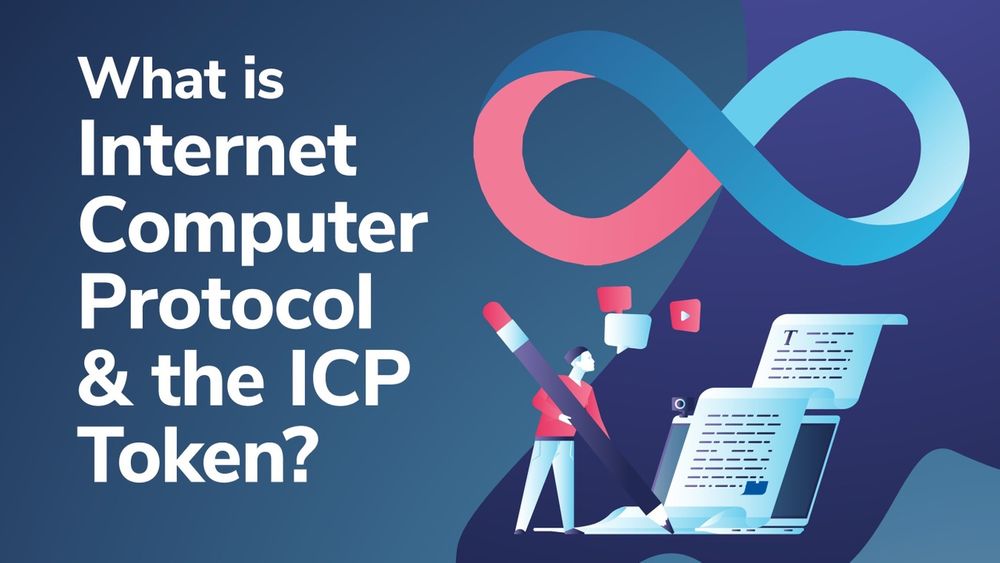
The main innovation behind the Internet Computer is Chain Key Cryptography, which encompasses numerous scientific break-throughs and countless advancements in crypto engineering such as:
- Network Nervous System (NNS) DAO: The world’s largest permissionless DAO by TVL ($10.3bn), as of January 5, 2022, and participants (536,962 wallets). The NNS DAO is an open, permissionless and decentralized algorithmic system governing the Internet Computer, which automatically upgrades the protocol based on proposals adopted by the community. As a result, it continuously adds new nodes allowing the blockchain network to scale infinitely.
- Low On-Chain Data Storage Costs: Decentralized data storage on the Internet Computer costs $0.46 per 1 GB / month or $5 per 1 GB / year. In comparison, it costs $310m (Ethereum) and $800k (Solana) as of January 17, 2022, to store 1 GB per year on legacy blockchains. As a result, legacy blockchains rely on centralized cloud providers such as AWS, Google Cloud, Microsoft Azure, Alibaba Cloud, etc., for off-chain data storage. For the first time, the low cost of decentralized data storage via the Internet allows entrepreneurs and developers to run Web3 dapps entirely on-chain.
- User-Friendly Web3 Experience: The Internet Computer is the only public blockchain that runs smart contracts that directly serves HTTP calls to users, which means Web3 dapps on the Internet Computer have the same high-quality, user-friendly experience of today’s mass-market Web2 apps and games such as TikTok and Fortnite. Most importantly, Web3 dapps on the Internet Computer run on censorship-resistant, sovereign infrastructure. Today’s biggest DeFi and DEXs such as Uniswap, SushiSwap, Aave, Curve, Compound, etc., depend on centralized cloud services such as AWS, Cloudflare, and Netlify for their user-facing front ends – the part of a website or service that users see and interact with. For the first time, entrepreneurs and developers can build censorship-resistant DeFi and Web3 dapps decentralized from end to end using the Internet Computer — without centralized cloud technology, which can easily be turned off as seen by the deplatforming of social media site Parler in 2021.
- Reverse Gas Model: Cycles are the computational resource (aka, gas) required to execute transactions on the Internet Computer. Unlike legacy blockchains, the Internet Computer has a reverse-gas model where developers pay to run Web3 dapps, DeFi, games, NFTs, social media, and metaverse projects. Similar to the success of Web2, the Internet Computer lowers the barrier for mass-market adoption by allowing users to interact with Web3 dapps without needing tokens or token wallets — no longer paying gas fees to mint NFTs, process DeFi transactions, play games, engage on social media dapps, etc.
- Anonymity: Users of Internet Computer-based Web3 dapps, DeFi, games, NFTs, social media, and metaverse use Internet Identity, the only anonymizing blockchain authentication system leveraging cryptographically enabled devices such as the fingerprint sensor (TouchID) on a laptop, FaceID system on mobile, or portable HSM devices such as YubiKey or Ledger wallet, to anonymously authenticate to Web3 dapps without being tracked across dapps and services, and preserving a users anonymity. At Genesis launch, DFINITY made node specifications public, allowing node providers to procure or build node machines independently. As a next step, DFINITY and the technical community are developing (see Roadmap) ways for amateur node providers, using low cost devices, to participate and further decentralize the Internet Computer network.
- 100% Sovereign Infrastructure: Similar to the Bitcoin network, the Internet Computer is the only other 100% sovereign infrastructure in a blockchain — with zero centralized cloud nodes. Currently, 70% of Ethereum nodes and over 50% of Solana nodes are hosted by centralized cloud providers such as AWS, Google Cloud, Microsoft Azure, Alibaba Cloud, etc., allowing tech giants to shut down or degrade the performance of legacy blockchain networks. As of January 17, 2022, there are 413 sovereigns, censorship-resistant Internet Computer nodes operated by independent node providers around the globe, leaving the Internet Computer immune to shut down by centralized parties.
Infinite Scalability:
The Internet Computer’s partitioning into subnet blockchains allows the network to scale infinitely. Each subnet (aka, mini blockchain), composed of 13 to 37 nodes to ensure Byzantine fault tolerance, exists within the more extensive Internet Computer blockchain. Continuously increasing the number of subnets also increases network throughput or overall block rate. As of January 14, 2021, the Internet Computer supports an industry-leading 32 blocks per second.
- Lightning Fast Speed: The Internet Computer blockchain is designed to consistently process an immense volume of updates and transactions without compromising speed, security, sovereignty, or decentralization. Recently, Real Vision CEO Raoul Pal stated, “The Internet Computer is bloody fast.” ICP is capable of processing up to 250,000 queries (read) per second, executed with an average 1-second finality (write) for Web3 dapps — “making it 11 times faster than Solana,” according to Origyn co-founder Mike Schwartz.
Who Runs the Nodes in the Internet Computer Network?
At Genesis on May 10, 2021, the Internet Computer is supported by 48 independent data centers — located across North America, Europe, and Asia — running 1,300 nodes. The network will continue to grow exponentially to support the next generation of mega dapps, with 123 data centers running 4,300 nodes scheduled by the end of the year and eventually thousands of data centers running millions of nodes to support the decade-long building out of the Open Internet. Importantly, anyone can become a node provider. Interested parties apply for a Data Center ID (DCID) to the Network Nervous System (NNS), procure specialized machine nodes, install the ICP protocol, and connect to the Internet Computer network.
How Fast is the Internet Computer Network?
Chain Key Cryptography’s scientific breakthrough allows the Internet Computer to run at web speed, making it the world’s fastest public blockchain at 250,000 queries per second (read), 11,500 transactions per second with 1-second transaction finality (write).
What Does the ICP Token Do?
ICP is the native utility token of the Internet Computer and is used in the following functions:
- Governance: ICP token holders may stake ICP in the Network Nervous System (NNS) DAO to create “Neurons” to vote on governance proposals and earn voting rewards.
- Gas: ICP tokens can be burned and converted into cycles (aka, gas), which developers use to pay for computation and storage costs for decentralized applications running on the network via intelligent canister contracts.
What Do Cycles Do?
Cycles power computation in the role of fuel. They also have a constant value over the long term, which contrasts with ICP, whose value will naturally vary over time. Moreover, Cycles will be pegged to the SDR, a logical currency unit defined by the International Monetary Fund, and 1 SDR worth of ICP can be converted into exactly one trillion Cycles to power computation.
What Do Neurons Do?
A neuron locks a balance of ICP utility tokens and enables its owner to participate in network governance, through which they can earn voting rewards.
Who Are the Natural Buyers for ICP Tokens?
- Token Holders who want to participate in network governance and earn voting rewards
- Developers who need to convert ICP tokens into Cycles to pay for computation
Also Read: Investing in property Vs. Investing in equity: Which gives higher returns?
ICP Token Supply and Tokenomics?
There will be 469,213,710 ICP tokens at Genesis. Circulating supply depends on the dynamics of the market. However, it is approximated to be 26% at Genesis. Genesis Initial State Token Allocations
- Early contributors: 9.50%
- Seed donations: 24.72%
- Strategic: 7.00%
- Presale: 4.96%
- Strategic partnerships: 3.79%
- Community airdrop: 0.80%
- Initial community and developer grants: 0.48%
- Node operators: 0.22%
- Internet Computer Association: 4.26%
- Team members: 18.00%
- Advisors and other third-party token holders: 2.40%
- DFINITY Foundation: 23.86%
How Does the Internet Computer Network Nervous System Work for Voting?
The NNS works by receiving proposals and deciding to adopt or reject them based on voting activity by neurons; that network participants have created. Participants also use neurons to submit new proposals. After submission, proposals are either adopted or rejected, which can happen immediately or after some delay, depending on how the totality of neurons votes.
Where to Buy Internet Computer(ICP)?
Internet Computer is available at various crypto exchanges, depending on your region. For the latest list of exchanges and trading pairs for this cryptocurrency, click on our Internet Computer market pairs tab.
Internet Computer is available on many top exchanges, such as Binance, Huobi Global, Coinbase, KuCoin, Gate.io, etc.
Do your research before picking an exchange to buy Internet Computer by using our education portal — Alexandria.
To check Internet Computer price live in the fiat currency of your choice, you can use CoinMarketCap’s converter feature directly on the Internet Computer price page. Alternatively, use the dedicated exchange rate converter page. Popular Internet Computer price pairs include ICP/USD, ICP/GBP, ICP/AUD and ICP/EUR.
Also Read: Bitcoin BEP2 (BTCB) Things You Need To Know Before Investing
What Are The Prominent Projects In The Internet Ecosystem?
According to the Electric Capital Developer Report, the Internet Computer is one of the fastest-growing developer ecosystems in 2021 — growing 368%. As of January 2022, evidenced by over 30,000 canister intelligent contracts deployed on the network, over a thousand developers are hard at work building on the Internet Computer, encompassing DeFi, play-to-earn and GameFi, NFTs and marketplaces, instant message and social media dapps, enterprise software, as well as infrastructure and metaverse projects. Most importantly, once the developer community agrees on a token standard, Internet Computer-based projects will soon tokenize and list on exchanges.
DeFi
- Next-generation decentralized exchanges such as Sonic, InfinitySwap, and ICPSwap, running entirely on-chain, are leveraging the Internet Computer’s reverse-gas model and 1-second transaction finality to give users zero gas fees and lightning-fast speed for swaps, transactions, and more.
NFTs
- The lead artist behind the Bored Ape Yacht Club collection debuted a new collection of NFTs on the Internet Computer at Art Basel, “The new series is hosted on the Internet Computer… allowing for bigger file sizes. It’s an example of how artists are starting to experiment with NFT platforms beyond Ethereum.” ORIGIN, an NFT marketplace building on the Internet Computer, saw its valuation soar to $300 million following an investment round from Paris Hilton and Wall Street veteran Bill Ackman.
Games
- Cube Run is a futuristic racing game built on the Unity 3D game engine, WebGL and hosted on the Internet Computer. Finally, MetaSports Basketball is an open basketball metaverse. Users utilize their favourite Ethereum and Internet Computer-based NFTs to compete to become basketball superstars on teams they own and manage.
Social
- OpenChat boasts 100,000 users, with close to 1 million messages sent over its decentralized messaging service. District, a decentralized Facebook, surpassed 70,000 user accounts and 100,000 posts — with less than $100 spent on gas. Email is the Web3 replacement for email and enables users to send and receive blockchain-backed, encrypted messages. Finally, social is a decentralized version of YouTube, enabling content creators to be fairly rewarded via tokens for their work and engagement.
Metaverse
- PokedStudios launched the Bots NFT collection in an early foray into the metaverse on the Internet Computer, with the rarest Bot netting a sale of 3,000 ICP (~$172,140). IC Gallery is an interoperable 3D metaverse blending GameFi and DeFi, where users can play, mint, and trade all their existing NFTs through various immersive 3D experiences.
Also Read: UNUS SED LEO (LEO) Things You Need To Know Before Investing

